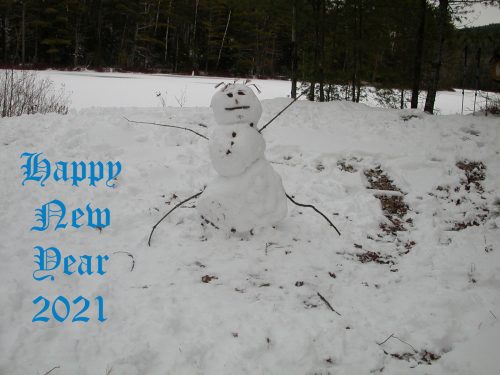One of the worst things about cancel culture is that it provides shelter for people like Woody Allen. When I talk about cancel culture, I’m talking about the job loss, censorship, and no-platforming of individuals for expressing heterodox opinions or calling attention to inconvenient facts. Cancel culture is policed on social media and enforced by self-serving clueless boobs, especially in the corporate media. Just as the McCarthy witch hunt was unable to bring down people like Lucille Ball, while ruining the careers of lessor figures such as John Garfield, today’s cancel culture has only managed to annoy JK Rowling, while forcing people like Julia Robertson out on their own. Cancellation is about disallowing legitimate speech, not about behavior. Ironically, purveyors of witch hunts and cancellation, while often denying these crusades are taking place, reserve for themselves illegitimate libelous speech, such as wantonly calling someone a “communist” or a “transphobe” without evidence.
Which brings me to Woody Allen. He has long been under fire for behavior, not for opinions or for speaking about unpopular facts. Even granting that the credible allegations by Dylan Farrow have never been proven, for reasons having nothing to do with their merit, the dude hooked up with the young daughter of his former romantic partner. It may be true that he waited to become sexually involved with her until she became barely legal, in which case what he did wasn’t against the law, but most people consider his actions exploitative and despicable, and some people hold him accountable accordingly. If people object to this pervert being feted in awards ceremonies, it doesn’t bother me a bit.
What bothered me about his quashed autobiography was not that it was being published. I wouldn’t have read it, being way too familiar, throughout my social work career, with the whining victim tone predatory men use to describe their life. But I personally wasn’t upset about the book deal. What did upset me was Ronan Farrow’s allegations that Allen’s account of the crimes he remains accused of was not fact-checked. This, after Ronan Farrow’s journalism on sexual predators in the film industry was minutely scrutinized for evidence.
For Allen to claim that Dylan Farrow’s allegations are unfounded is to say that she is lying or delusional. Women who bring false claims of sexual abuse are treated harshly, by public opinion and the law. It’s one thing for Allen to claim he’s innocent in an interview. In a nonfiction book, it calls the publisher’s vetting process under scrutiny. I am not privy to serious discussions about the course of action after Ronan Farrow raised a stink, but I don’t see how the book could have been published while giving Allen permission to address allegations against him without proof. He’s had adequate opportunity to respond, without making the credibility of those associated with his projects problematic.
On to the second fish to be fried, flayed, and charbroiled. The Dr. Seuss biz has about played out, but I’m bringing it up here as another example of something being reflexively assigned to “cancel culture.” The situation here is more of a gray area.
The trust for Dr. Seuss voluntarily withdrew a half dozen of his many books from publication. The drawings in the books, most people would agree, are unequivocally racist. There is no evidence that the trust was forced to do take the action they did, although there have been calls from some quarters to withdraw all Dr. Seuss books from school libraries and publication, whether overtly racist or simply penned by the author. So there were calls to “cancel Dr. Seuss,” yet there is a difference between responding to legitimate criticism and having your arm twisted to (not) say “uncle.” There were other ways to address the racism in those particular books, but the trust chose their own course of action.
I supported the decision to withdraw the books in question from publication, and would not call this “cancel culture.” In retrospect, however, I think the way the decision played out is a cautionary tale. If the Dr. Seuss trust was not under any exigent threat, why was the decision accompanied by a formal announcement? That in itself triggered an outraged response. Perhaps the hope was that the public statement would mean racism in other children’s books would be addressed, through being withdrawn, redrawn, or edited. (This process has actually been happening since the sixties, though not fast enough or complete enough for some.) Perhaps the trust thought the calls to cancel Dr. Seuss altogether would cease if they responded to legitimate criticism. If that was the hope, it was misplaced.
Soon there were calls for all libraries everywhere to destroy the books in question. Then the calls to cancel Dr. Seuss altogether were amplified, along with similar outcries against other twentieth century children’s authors. EBay and other resellers banned the sale of the now out-of-print Seuss books. Considering the amount of racist memorabilia sold on eBay, not to mention the appropriated archeological treasures, this action could only be called a cynical ploy to pander to what was becoming a mob frenzy. The move to halt publication of the books may not have been provoked by cancel culture, but cancel culture took over.
Calls to cancel “racism” in books, longstanding or newly published, are often, in the current climate, not made in good faith. This is a power and control game, one that shuts down discussion of racism instead of furthering it. When the trust made an announcement about withdrawing those six books, rather than doing it quietly, some people smelled blood in the water while others had fears stoked that were not about racism. Suddenly we were talking about censorship and cancel culture, and while that needs to be talked about, racism itself, as opposed to ass-covering virtue-signaling designed to avoid being called a racist, was no longer part of the conversation. Was quiet action a better choice? Either way, a discussion that could have been had, was not had.
Which is what cancel culture is all about.






